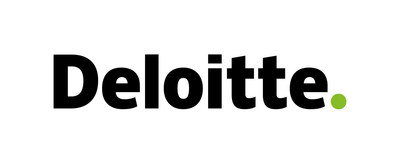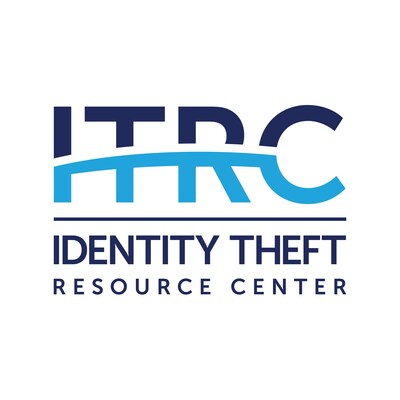Two billion youth at risk of being left behind in workforce of tomorrow without business leadership and new solutions, according to new report
Press Releases
Sep 25, 2018
NEW YORK, Sept. 25, 2018 /PRNewswire/ — The Fourth Industrial Revolution (4IR) is bringing emerging technologies to the forefront at a rapid pace not experienced before. It is transforming the type of work people do, and how it is done. While 4IR offers new opportunities, many in the workforce today are being left behind, and are unprepared for the future. This has led to growing concern from business leaders that the global workforce is not able to keep up with the current rate of change. In particular, 1.8 billion youth worldwide stand to be left behind by the changes.

According to a new report by Deloitte Global and GBC-Education, “Preparing tomorrow’s workforce for the Fourth Industrial Revolution, For businesses: A framework for action,” the business community must take a more proactive role in preparing today’s youth to ensure that they are ready to become the workforce of tomorrow and provides recommendations to do so. To do so successfully, the business community must join other stakeholders in taking action now to prepare the next generations for the future of work.
“When it comes to addressing the opportunities and challenges of the Fourth Industry Revolution, I believe we need a new mindset for action to ensure we are preparing now for the workforce of the future,” says David Cruickshank, Deloitte Global Chairman. “This means that business has to play a leading role by not only defining and communicating what skills are needed in the future, but also by working side by side with educators, governments and non-profits to ensure our future employees are receiving the education necessary to compete and succeed in a workforce facing massive technological disruption.”
When looking at what skills will be required to succeed in 4IR, four skills emerged from the research:
- Workforce readiness: Basic skills such as time management, personal presentation, and attendance are critical to entering the workforce.
- Soft skills: As humans increasingly work alongside robots, uniquely human skills, such as creativity, complex problem solving, emotional intelligence, and critical thinking will be irreplaceable by machines.
- Technical skills: New employment opportunities are being created through technology. Jobs that are currently going unfilled often require industry-specific technical skills and targeted training.
- Entrepreneurship: As the gig economy grows, youths ability to be innovative, creative, and take initiative to launch new ventures will serve them well in the 4IR.
“At the Global Business Coalition for Education, we are approaching 4IR with optimism. Technological innovation and artificial intelligence will provide incredible enhancements to quality of life,” says Sarah Brown, Founder and Executive Chair of GBC-Education. “If we can find ways to enhance young people’s ability to harness these technologies through critical thinking and creativity we will lay the foundations of success for millions of young people. At the heart of the issue is quality education and training. And business is a critical part of the solution.”
It is evident that new approaches to preparing youth worldwide for the future of work are required—doubling down on both the skills and training needed will be critical to success. Against this backdrop, business as a whole must consider the challenges associated with addressing this complex issue in order to inform innovative, sustainable solutions.
According to the report, there are a number of key challenges facing the business community. First, 4IR is often framed as a problem that needs to be tackled as opposed to a unique opportunity for business to make an impact. While businesses are focused on addressing the issue at hand, financial investment alone will not employ 1.8 billion youth; therefore, new systemwide approaches are needed. Additionally, businesses currently make trade-offs between scale and impact, but this research suggest ways to achieve both. Overcoming the challenges of reaching the most marginalized youth, including women and girls, is also critical.
Within this landscape, it is essential for business to accelerate their role to enact meaningful solutions to the youth skill gap. The four key recommendations to drive change:
- Align stakeholders’ objectives and approaches: In order to achieve scalable results, businesses need to work with the broader ecosystem, implementing an integrated approach that leverages each group’s strengths and capabilities for impact. This includes coordinating opportunities, identifying gaps in training, finding opportunities for co-investment, and sharing information about future talent needs.
- Engage in public policy: Business has an opportunity—and role—to help governments prepare policies, rules, and regulations that will benefit youth and strengthen our future workforce. Dialogue, advocacy, collaboration, and influencing government are key means to drive results.
- Develop strong talent strategies: Reviewing and adapting current talent strategies will be important to future success, and developing best practices that promote inclusivity and innovation will be critical.
- Invest in workforce skilling: Employee training can no longer be a “check the box” activity, and business needs to evaluate, invest, and promote workforce training programs strategically so that future talent needs and requirements can be met.
The Global Business Coalition for Education now plans to take the recommendations forward through its Youth Skills and Innovation Initiative by establishing an “action hub,” and bringing together diverse partners to take action to drive forward and scale new models for youth skills. Deloitte is committed to working with leaders from across the business to apply the recommendations to its own programs, and support youth around the world join the workforce of the future.
To learn more about the new report by Deloitte Global and GBC-Education, “Preparing tomorrow’s workforce for the Fourth Industrial Revolution, For business: A framework for action,” click here.
About the Deloitte Societal Impact Commitment
Addressing the complex challenges society faces today has become a mandate for business, and one that requires a new mindset for action.
Deloitte is taking action through WorldClass, a societal impact initiative to empower 50 million futures by 2030. Our ambition is to create pathways for people to fulfill their aspirations and find meaningful work in the new economy. The Deloitte network is also empowering women around the globe, promoting environmental sustainability, investing in new insights and methodologies, and serving clients to fulfill their purpose.
Deloitte is committed to responsible business practices, serving the public interest, and making an impact on society. Learn more about our commitments here.
About Deloitte
Deloitte refers to one or more of Deloitte Touche Tohmatsu Limited (“DTTL”), its global network of member firms, and their related entities. DTTL (also referred to as “Deloitte Global”) and each of its member firms are legally separate and independent entities. DTTL does not provide services to clients. Please see www.deloitte.com/about to learn more.
Deloitte is a leading global provider of audit and assurance, consulting, financial advisory, risk advisory, tax and related services. Our network of member firms in more than 150 countries and territories serves four out of five Fortune Global 500® companies. Learn how Deloitte’s more than 286,000 people make an impact that matters at www.deloitte.com.
About the Global Business Coalition for Education
The Global Business Coalition for Education is a member-driven organization for ‘Next Generation Actionist’ businesses who understand the power and potential of leveraging their knowledge, resources, and scale to have a greater impact on young people through education. The Coalition has grown to over 150 companies in its network using influence, core business, social responsibility, strategic investments, and thought leadership as powerful tools for positive change.
Starting with the youngest children and focusing on the most marginalized groups, the Coalition brings together a diverse partnership of companies, governments, foundations, non-profit organizations, international agencies, and young people to prepare the next generation of innovators, creators, makers, and entrepreneurs with the skills needed for the 21st century.
Please see www.gbc-education.org for more information.
![]() View original content to download multimedia:http://www.prnewswire.com/news-releases/two-billion-youth-at-risk-of-being-left-behind-in-workforce-of-tomorrow-without-business-leadership-and-new-solutions-according-to-new-report-300715284.html
View original content to download multimedia:http://www.prnewswire.com/news-releases/two-billion-youth-at-risk-of-being-left-behind-in-workforce-of-tomorrow-without-business-leadership-and-new-solutions-according-to-new-report-300715284.html
SOURCE Deloitte



